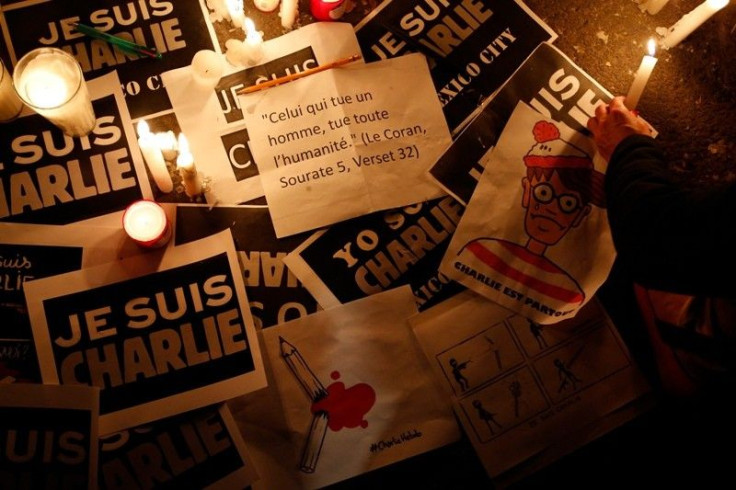UK Steps Up Security After Charlie Hebdo Attack In Paris: Threat Level To Remain "Severe"

Following the Charlie Hebdo attack by suspected Islamic ultras in Paris, many European countries, including the U.K. have tightened their security. The U.K. stepped up security at border crossings and enhanced the searches of vehicles and passengers. It also stacked up scanning of freight. The visible security at border locations, such as the French port of Calais, the Eurostar train terminal in Paris's Gare du Nord station and at several U.K. ports has also been increased.
The Wall Street Journal reported the concern among European security and intelligence officials about lone terrorists and small groups of gunmen becoming the biggest threat from the current wave of extremism. Andrew Parker, the head of the U.K.'s domestic intelligence service, MI5, described the Paris attack as a "terrible reminder of the intentions of those who wish to harm us." He said this in a speech at the agency's London headquarters. Parker cited al Qaeda and said "a group of core al Qaeda terrorists in Syria is planning mass casualty attacks against the West." He refused to elaborate more on the information.
Meanwhile, COBRA, the civil contingencies committee said the U.K.'s threat level still remains at "severe", which is the second highest rating, with high probability of a terrorist attack. The threat level was stepped up from "substantial" to "severe" in August 2014 following the threat from outfits like ISIS, reported Market Watch.
Safety Tips
In November, the British authorities published an open guidance to alert people on what they should do in the event of an attack by gunmen. It advised people to take cover and leave as soon as possible. "If unable to escape, lock yourself and others in a room or cupboard," the detailed guidance suggested. It also advised the people to barricade the door, and stay away from it, if possible, choose a room where escape or further movement is possible. They must also silence any sources of noise, such as mobile phones.
Meanwhile, French authorities beefed up police presence around government buildings, tourist sites and other sensitive locations. Additional police and paramilitary forces have been deployed across the greater metropolitan area of Paris, with police standing guard at department stores, newsrooms and religious sites. The streets around the president's official residence, the Élysée Palace, have been sealed. The alert level at the Picardie region in Northern France has also been raised, where the police are hunting for the alleged gunmen.
Trained Terrorists
Meanwhile, Security experts expressed the apprehension that going by the style of the attack in Paris, there seems to be a degree of tactical sophistication in the attack unlike the recent attacks on other Western targets. Some also suggest the masked gunmen having received military training, raising concerns about the risk from people who are trained by extremist organisations overseas and returning to the West to launch terror attacks.
(The writer can be contacted with feedback at kalyanaussie@gmail.com)





















